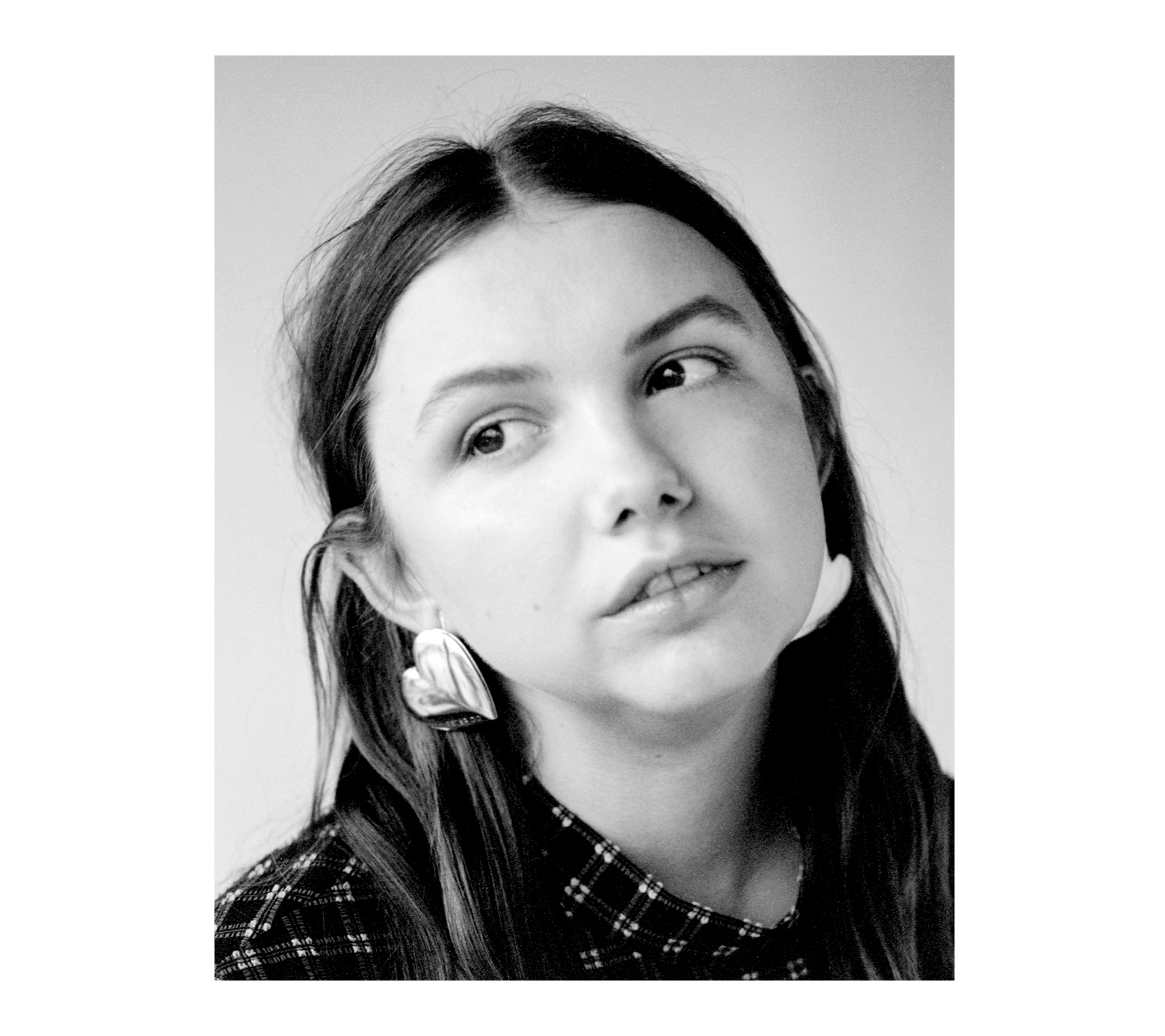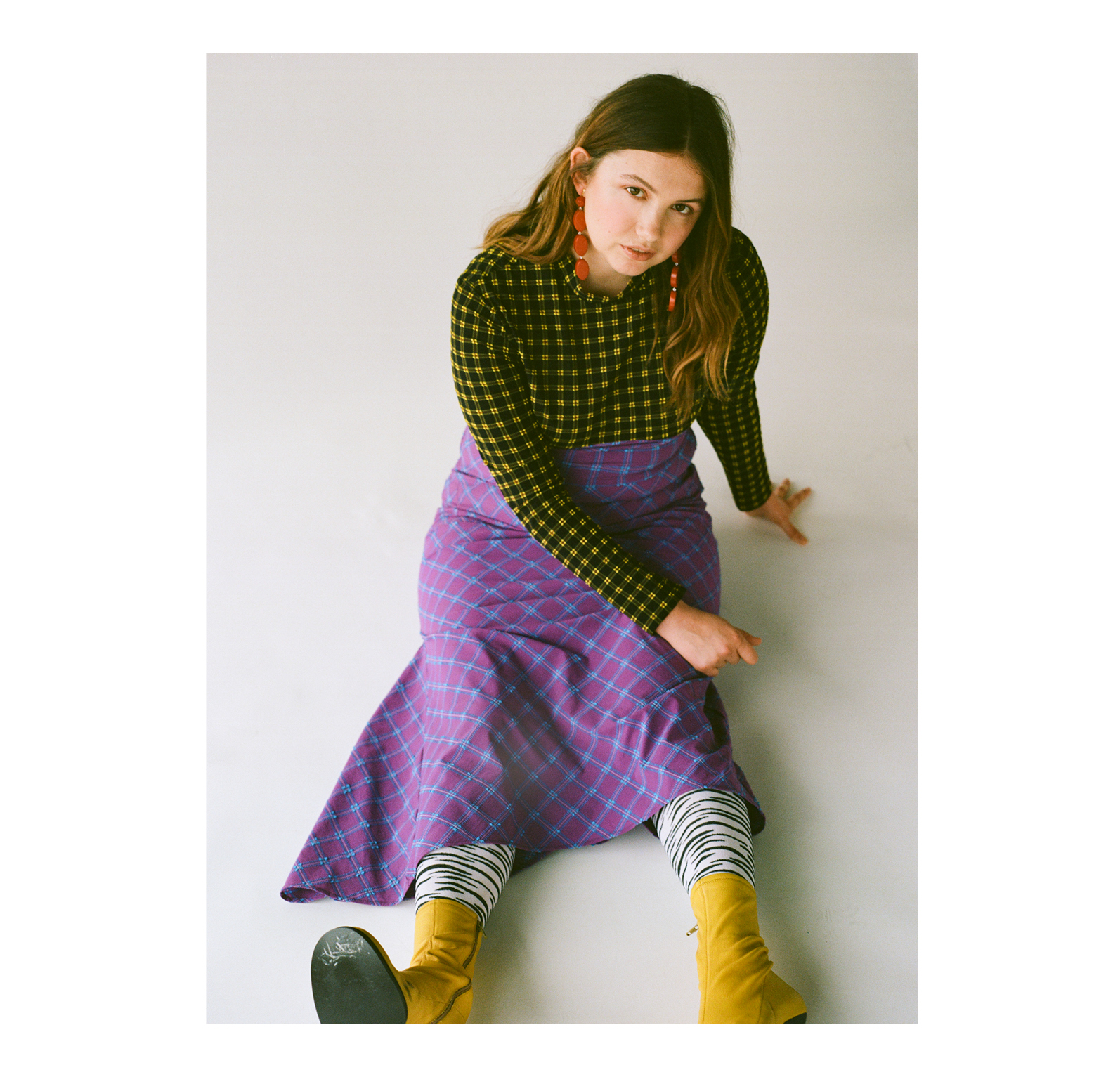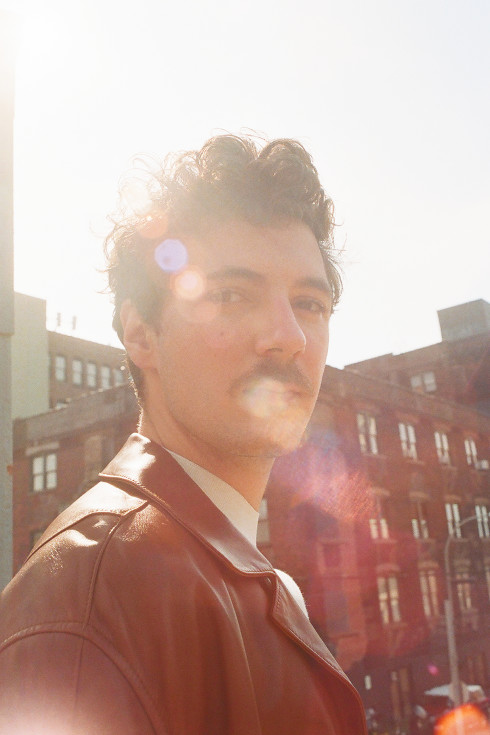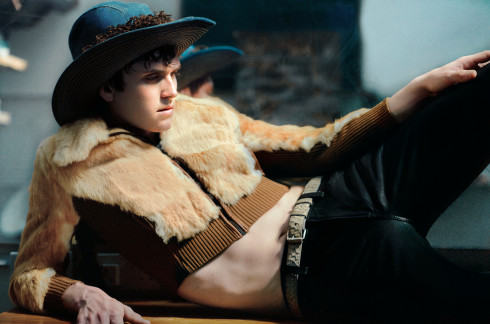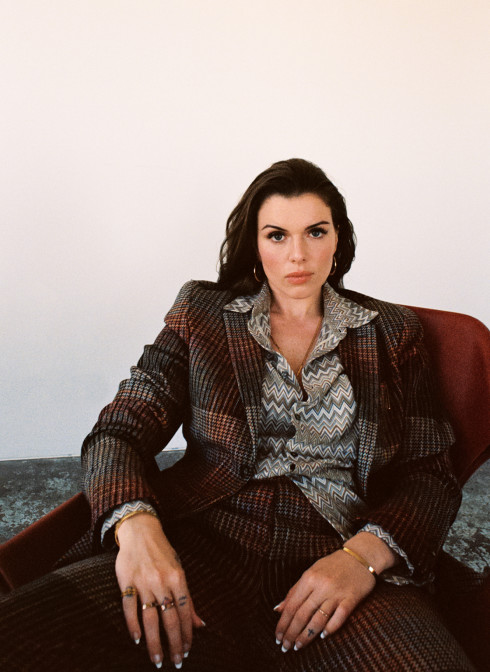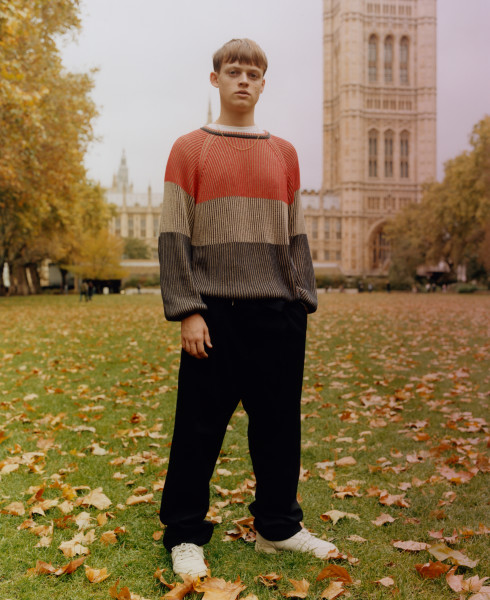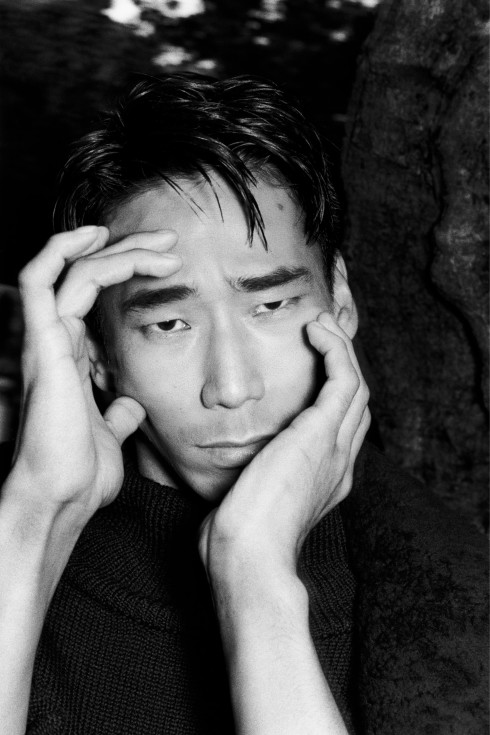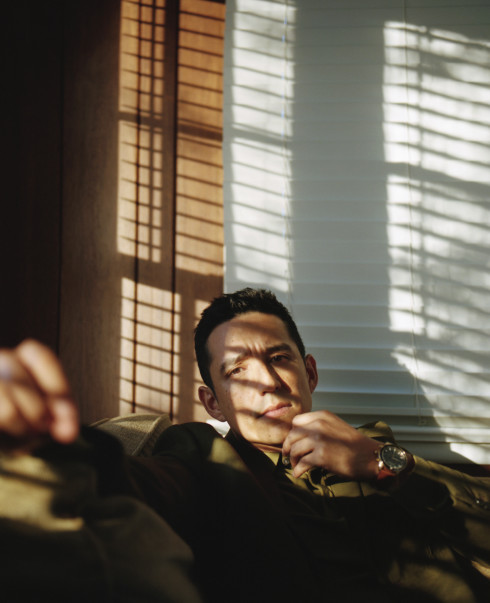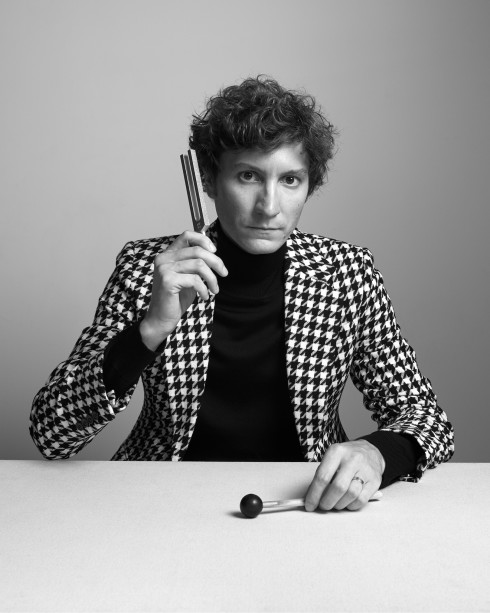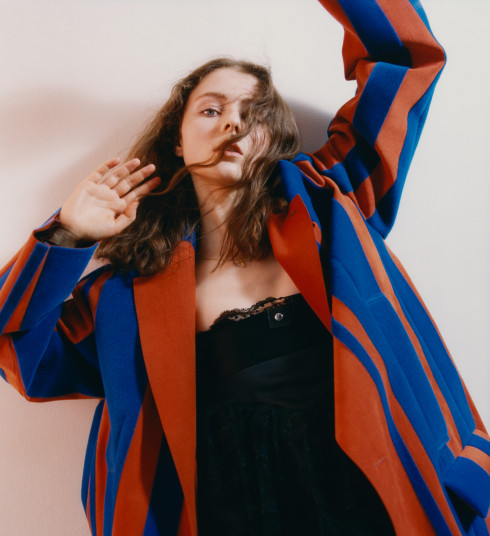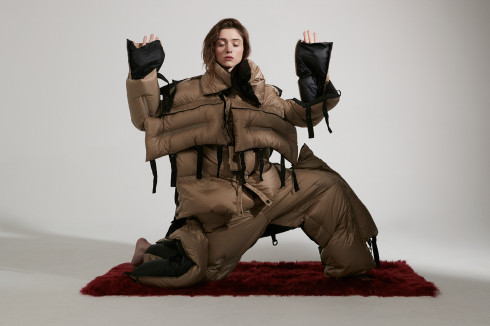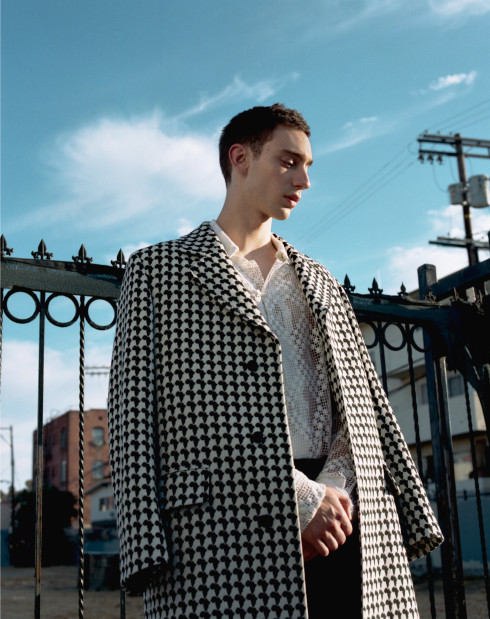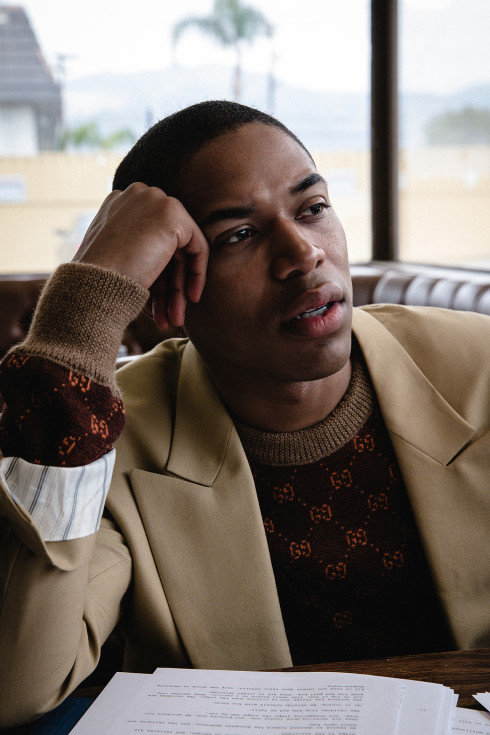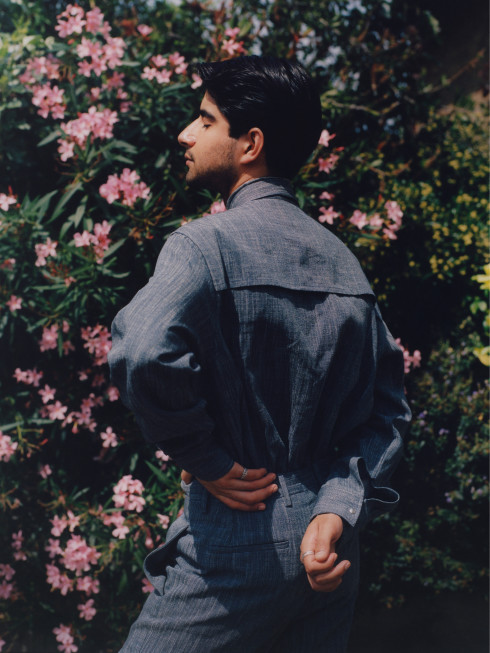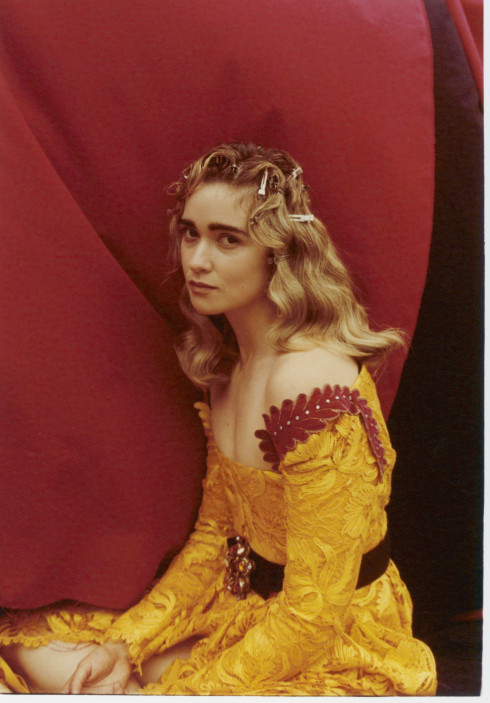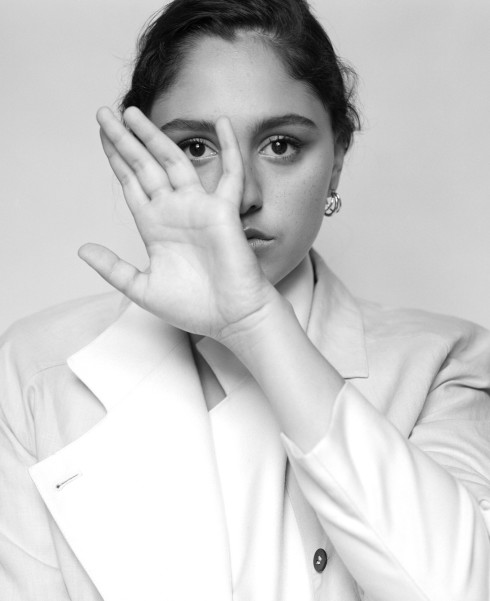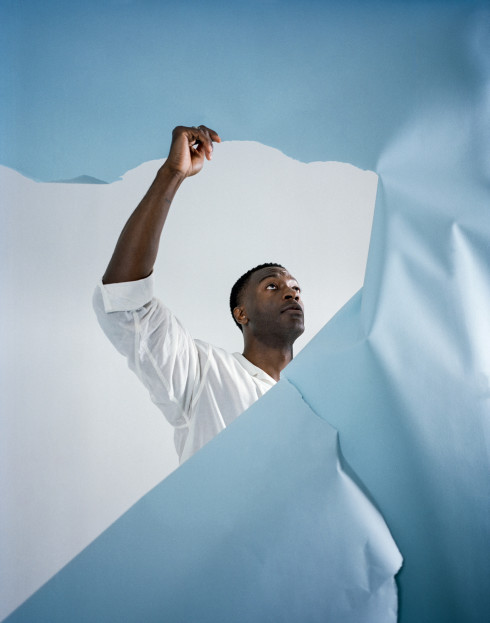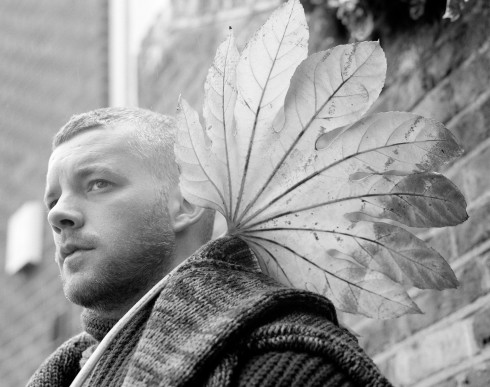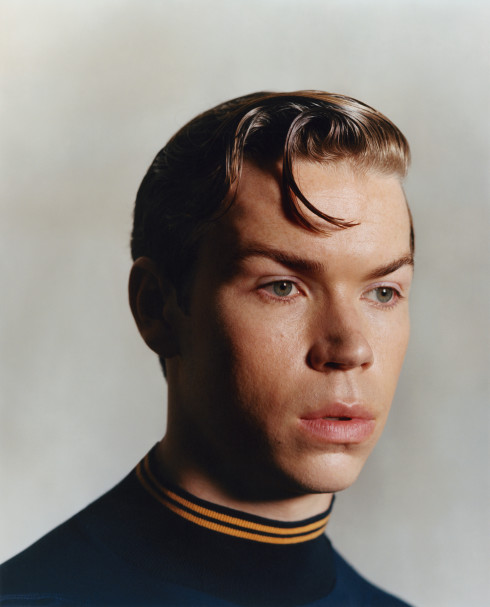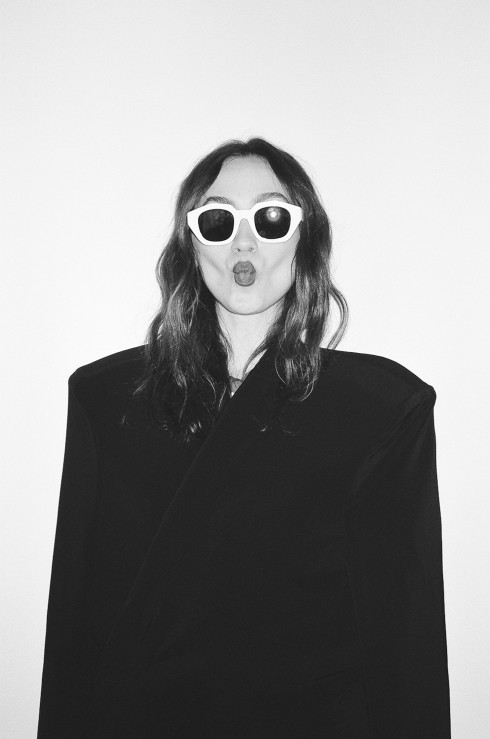
Coat by Rains from Assembly Los Angeles. Bodysuit by Limb. Tights and earrings, stylist’s own. Shoes by Nicole Saldana from Assembly Los Angeles.
- By
- Gautam Balasundar
- Photography by
- Bennet Perez
- Styling by
- Sissy Sainte-Marie
Hair by Ramsell Martinez at Lowe and Co using R+Co. Makeup by Homa Safar. Photographer’s assistant: Roy Barry. Stylist’s assistant: Angela Rose Gutierrez.
Hannah Murray Loves a Challenge
In the new film Charlie Says, Hannah Murray plays Leslie Van Houten, a real-life member of Charles Manson’s infamous “Family” who was sentenced to life in prison for her part in the murder spree that terrorized Southern California in 1969. In every scene, tangled emotions pass over Murray’s face, from confusion to catharsis, each flashing across the screen in a way that is almost palpable. Her performance offers a new perspective on a dark moment in history long laid to rest and somehow manages to extend empathy to a figure heretofore so unobjectionably maligned. Anyone who has paid attention to Murray’s acting—whether in Skins or Game of Thrones or any of her previous film appearances—wouldn’t be surprised by this effect. Much of the acclaim given to the projects she’s been in has been directed towards her captivating presence, which consistently demonstrates that her principal interests are exploring uncharted territory and pushing the bounds of her storytelling ability as an artist.
Murray grew up in Bristol and for most of her early life didn’t see acting as a viable career. “No one in my family has anything to do with this industry,” she states, with both of her parents working in academia. “It always felt like wanting to be an actor was impossible—it was the same as wanting to be a Martian or something.” It wasn’t until she was eleven that the desire became the “strong, all-encompassing feeling” that continues to drive her pursuit today. She did plays throughout high school, but even then she remained uncertain about the potential to turn it into a career. Even those she believed to be the most talented weren’t getting into drama school, a step she thought necessary to become a professional actor. “I was like, ‘Well if these people who I think are so brilliant aren’t getting in, then I’m probably not going to get in, so how can I do this?'” she recalls. “I was starting to sort of give up on the idea when I was around sixteen and I was like, ‘Maybe I want to do something different that feels more accessible or more possible.’”
A week before her seventeenth birthday, the realm of possibility changed. Murray auditioned for the phenomenon-to-be Skins, landing a role in the original main cast as Cassie Ainsworth, who suffers from anorexia, depression, and suicidal thoughts—her first professional job. She spent two seasons on the show, earning attention for her vividly honest portrayal of a complicated and self-destructive teenage girl, before it was recast with a second generation of characters. She decided to juggle acting with college while studying English at Cambridge and her timing remained fortuitous. A week after graduating, she landed another iconic role: Gilly on Game of Thrones. “It was my first time just focusing on acting. I had always otherwise been going to school or going to university at the same time,” she recalls. “That was interesting and fun and scary as well because I had always had something else to put acting in perspective and to put my focus fully on it felt vulnerable in a way. I think you have to learn a lot about how to build a life for yourself in the community.”
Never content without the thrill of a new challenge, Murray has also worked consistently on London stages during the off-time from her television shows. Unlike many British actors who began their careers in theater, Murray was thrust into screen acting early on, so she approached live performance with the same fears anyone just starting out would have. Polly Stenham’s celebrated play That Face became her first major work following Skins—she replaced Felicity Jones when it transferred to the West End—and the first chance to stretch her range. It was met with immediate acclaim, with much praise going to Murray’s performance. “I think that That Face was a really important lesson for me in how much I could gain as an actor and as a person from challenging myself in that way,” she explains. “I wasn’t trained in theater at all and I was very scared to do those early performances. When I overcame that fear and did it and it went well, it was the most amazing feeling in the world and I realized I was capable of more than I could imagine.” When she returned to the stage in 2014 in Martine, her performance was celebrated by many as one of the year’s best. “I think that challenging myself is very important,” Murray adds, “and I never want to let myself get bored.”
The last four characters Murray has played in films have been anything but boring. In 2015, she won Best Actress at the Tribeca Film Festival for her performance opposite Josh O’Connor in Brigend, about a suspicious cluster of suicides in the eponymous Welsh town. She then played Sylvia Ageloff in The Chosen, about the assassination of Trotsky; one of the female hostages along with Kaitlyn Dever in Katheryn Bigelow’s Detroit; and now the murderer Leslie Van Houten in Charlie Says. Each film deals with dark topics based on true stories, but Murray insists that these choices don’t reflect a proclivity she has so much as opportunities which she relishes. “I love fiction,” she explains. “I’ve been in a fantasy show and I’ve done musicals, but there’s something so meaty about those roles and I love getting to really dive into that. It’s been a weird pattern—it definitely wasn’t deliberate—but I think when you read those scripts and you hear those stories, of course you want to explore them. I’m just interested in humanity and I think a lot of the best stories do come from real life.”
The story of the Manson Family is well-known at this point, but rarely does it revolve around the perspective of the young women, many of them just teenagers, swept into Manson’s deceptive allure. Charlie Says, in contrast, focuses primarily on Van Houten, one of the women who was originally sentenced to death for the Manson-related murders of Leno and Rosemary LaBianca. The film portrays an emotional complexity in people who are typically dismissed as delusional—though they’re painted as that too and are never absolved of their crimes. Rather controversially, in fact, they are depicted as victims of Manson’s themselves. “Guinevere has written it in such a beautiful way that you do have empathy toward these women,” Murray says of the film’s screenwriter, “and it surprised me. It felt like it was stretching the limits of where I thought my empathy could go.”
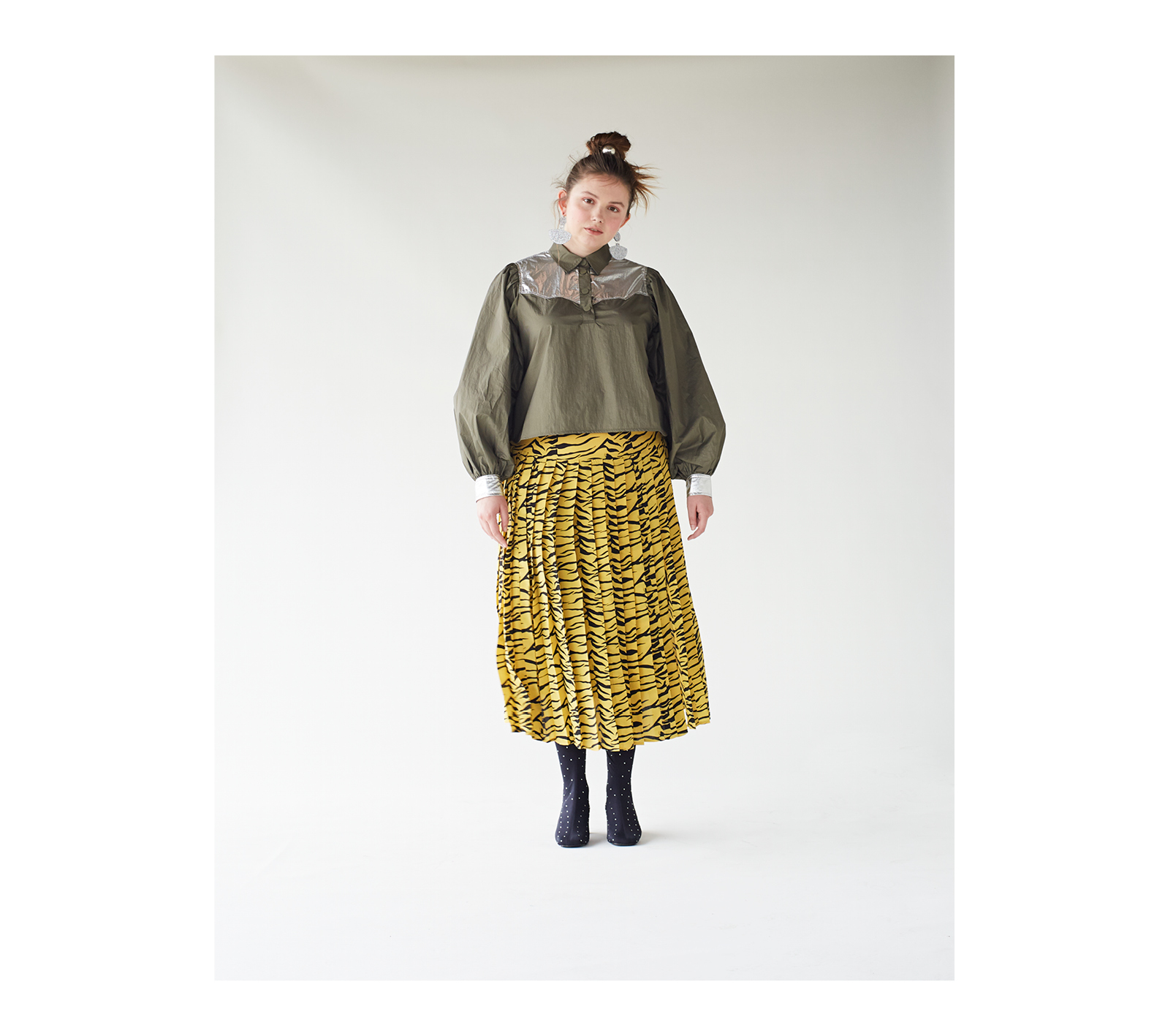
The film cuts between the period leading up to the murders and the aftermath when Van Houten and two other Manson Family convicts are in a secluded prison unit where they begin to reconcile with the past through therapy sessions with social worker Karlene Faith, who wrote the original book on which the film is based. It provides a glimpse at the mental and emotional states of the women, who struggle to accept the severity of their actions. “Empathy is the key to everything I want to do as an actor and as a human,” Murray says, “so it felt really important to me to ask, ‘Can I empathize with this woman who did such a terrible thing?’ I found out I could and I thought that she was incredibly compelling. I think that we’re always curious about people who are really at the limits or beyond the limits of what is acceptable as a human being and what makes someone do that. I was so, so fascinated to try and understand why she got to that place.”
Murray’s natural interest in these human stories has been driving her performances, but her need for a challenge is ever-present and now is the time for her to tackle something new. “It feels like a very interesting time right now because Game of Thrones is a chapter of my life and career that’s coming to an end and I’m turning thirty this summer,” she says. “I feel like that also marks a beginning of a new chapter in my life so I’m taking some time to reassess where I’m at and what I really want to be doing. I’m also looking at other creative avenues.” For Murray, that means writing her own stories and if she does so with the same tenacity with which she approaches her acting, it seems there’s little she won’t be able to do. “I feel like I want to step into a slightly more empowered way of being creative,” she offers, “and I’m interested in finding my voice more as an artist.”
Charlie Says is out now from IFC Films in theaters and on digital on Friday.
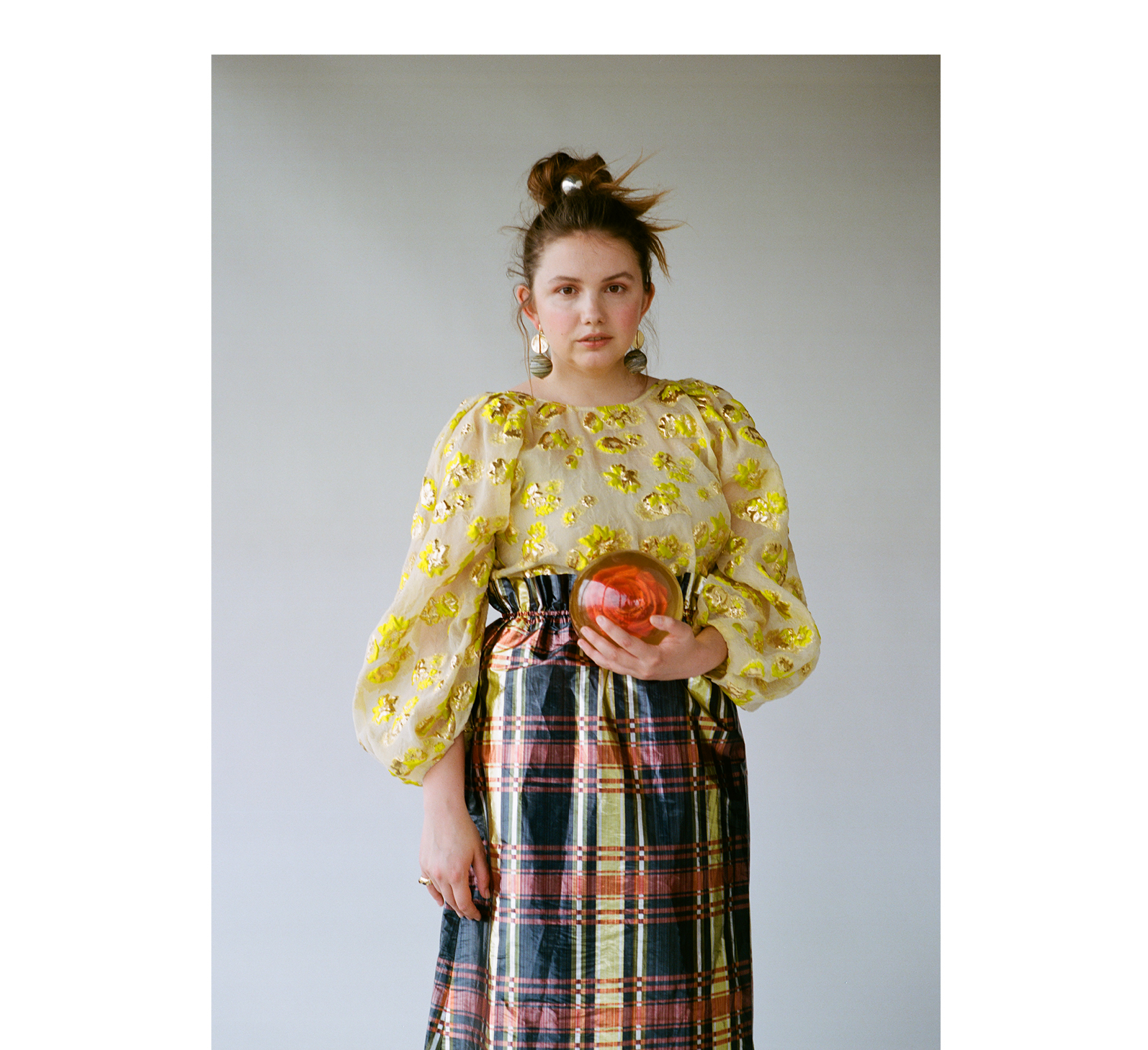
- By
- Gautam Balasundar
- Photography by
- Bennet Perez
- Styling by
- Sissy Sainte-Marie
Hair by Ramsell Martinez at Lowe and Co using R+Co. Makeup by Homa Safar. Photographer’s assistant: Roy Barry. Stylist’s assistant: Angela Rose Gutierrez.
